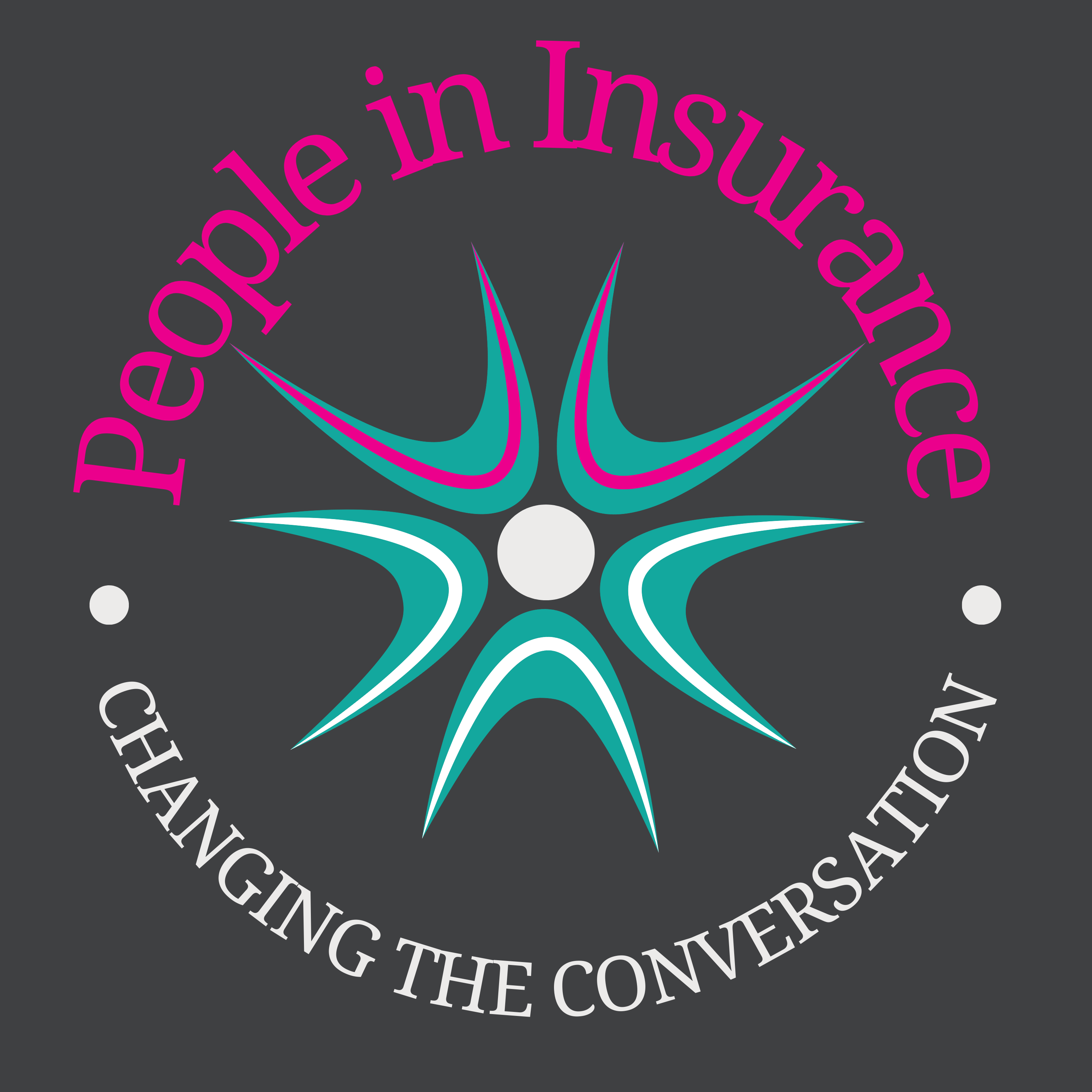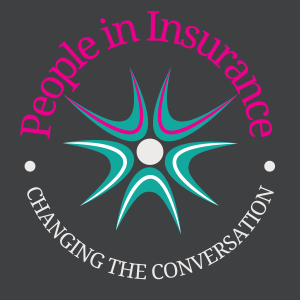
31.2K
Downloads
128
Episodes
Welcome to People in Insurance: Changing the Conversation Join us as we delve into the dynamic intersection of diversity, culture, and technological innovations within the insurance industry. Listen in as Host, Sarah Myerscough, Chief Ideas Officer at Macaii, sits down to talk with trailblazers, thought leaders, and innovators who are reshaping the very fabric of insurance. Here, we bring you stories that not only redefine the narrative but also offer a fresh perspective on the evolving landscape of insurance. From ground-breaking initiatives to transformative insights, we’re your trusted guide through the winds of change. Tune in to People in Insurance, brought to you by Macaii, and stay ahead of the curve in the ever-evolving world of insurance.
Episodes

Sunday Dec 01, 2024
Sunday Dec 01, 2024
Why is it crucial to curate and maintain a good relationship with your software vendor?
How do you go about selecting the right vendor for your business, and when is the right time to jump ship to a new platform?
Is our industry’s rapid entanglement with AI necessarily fraught with danger, and how can we exploit it to drive efficiency and enhance customer’s buying experience?
As our access to and experimentation with data continues to fuel rapid changes to our industry’s broader infrastructure, it’s high time for many insurers, brokers and MGAs to adopt software to better manage their systems and products. This can feel like a minefield, with an ever-expanding array of Insurtech providers on the market, and with digital transformation projects frequently failing due to miscommunication between customers and software vendors. In this episode, we’re privileged to be speaking with Andre Symes, Group CEO of Genasys Technologies, about how to navigate these risks and curate a collaborative and long-lasting relationship with your chosen software provider. He describes the need for compromise in what will become a ‘corporate marriage’, and also explores the risks and opportunities that AI will present the insurance industry for years to come.
Quote of the Episode
“We need to start appreciating the fact that tomorrow's buyers are not buying insurance in the way that today's buyers are buying insurance… They don't own cars; they don't own homes. They just live in the gig. Unless we start shaping insurance to accommodate that, I think we're going to be disrupted, and we're not going to be disrupted internally. We're going to be disrupted from outside.”
Our industry’s current architecture is contingent on a vision of modern society that is quickly slipping away. With car ownership, house ownership and pet ownership all declining, the next generation of insurance customers will be seeking cover to accommodate for a lifestyle entirely different from that which our industry is currently equipped for. This is accentuated by the advent of new technologies that are certain to radically transform the way we conduct our daily lives; not least self-driving vehicles which already are capable of 0% accident rates. Our industry has always been reluctant to adopt change; but those companies, and indeed sectors which fail to heed the warnings on the horizon are sure to be left in the dust.
Key Takeaways
The technology that will reshape our future has already arrived. For the insurance market to remain sustainable, it must adapt to the advent of AI and incorporate it into our everyday practices. Genasys is already using AI to make its platforms more user-friendly. If its customers, in turn, wish to incorporate AI to enhance their own clients’ purchasing journey, Genasys can facilitate this via an API connection. It is clear that AI and software, more broadly, will be key to building the insurance industry of tomorrow.
However, software should always be an enabler, to allow businesses to function and provide the personal journey that will always remain front-and-centre of what we do as an industry. As such, when beginning a transformation project to adopt a new software for your business, you don’t want to end up stuck with a monolithic platform for the next several years that can’t evolve alongside you. Andre outlines two major steps to take before selecting a software vendor for your business. Firstly, he argues that you must meticulously interrogate the platform’s capability – via demonstrations, proof of concepts, and ideally, access to a digital sandbox. You need an in-depth understanding of what a platform is, and how it can be modified to suit your business’ needs. Secondly, it is also crucial to understand the capital structures of the platform provider. Is it sustainable in the long term – and will they exist for as long as you intend to use the platform?
Selecting a software provider is the first step in what will become, hopefully, a five-to-ten-year long relationship – a ‘corporate marriage’. As such, there must be a culture fit between both businesses before the engagement takes place. Is this vendor a partner willing to have an open conversation about their platform’s capabilities, and how it can (and cannot) be modified to suit your business? Furthermore, when engaging in initial discussions with vendors, you must remember that compromise on both sides will be both inevitable, and key to a sustainable and healthy business partnership.
Best Moments/Key Quotes
“I was at an event recently, and I was listening to a couple of reinsurers talking about the fact that the data that they receive is sometimes 18 months old. If you're working with data that is 18 months old, your modelling is going to be impacted on that. So, what we need to try and do as an industry is get the data to the providers as quickly as possible. Link the platforms up via APIs. Get that data across to the carriers in real time so they can understand what the exposure is, and can understand what the loss ratios are. That way, there’s higher confidence, and with higher confidence comes more capacity.”
“When you sign up for a platform, you're not doing it for a couple of years. You're doing it for hopefully 5 to 10 years. So that organization still needs to be around in ten years’ time. If they can't carry on raising at the valuations that the previous year raised, they're going to be ripe for acquisition in a couple of years.”
“Genasys currently has 30 customers. And every single one of those CEOs of those customers has direct phone access to me. They phone me up if they've got a problem, or if they want to potentially acquire another business [and see] if can we accommodate it. Having personal relationships with your customers is really important, and you can't do that if you have to scale exponentially. You can't have a CEO-to-CEO relationship with 150 customers. And that's what we want to be in the short term.”
‘Any CEO telling you that they've had a perfect implementation history is lying to you.’
“It's effectively a corporate marriage because, you're going to be partners, a vendor and customer, for ten years. If you want that to be a happy relationship, you have to concede on either side and find a middle ground on implementation, pricing area, functionality, et cetera.”
Resources
Genasys Technologies: https://www.genasystech.com/
About the Guest
Andre Symes is the Group CEO of Genasys Technologies, which develops bespoke end-to-end software platforms for insurers, MGAs, and brokers. During his thirteen years with the company, Andre has overseen its expansion into the UK and US insurance markets.
Andre’s LinkedIn Profile: https://www.linkedin.com/in/andre-symes/
About the Host
Sharon Brown is a Board Advisor to Macaii and Genasys Technologies. She is also a Board Director for the MGAA and CEO of Nutshell Consultancy, which helps business leaders to develop innovative and strategic product distribution. With over 30 years’ experience in the industry across a host of businesses and roles, Sharon is well-equipped to interrogate the major issues and ideas challenging our industry today.
Sharon’s LinkedIn Profile: https://www.linkedin.com/in/sharon-e-brown/
Website: www.macaii.co.uk

No comments yet. Be the first to say something!